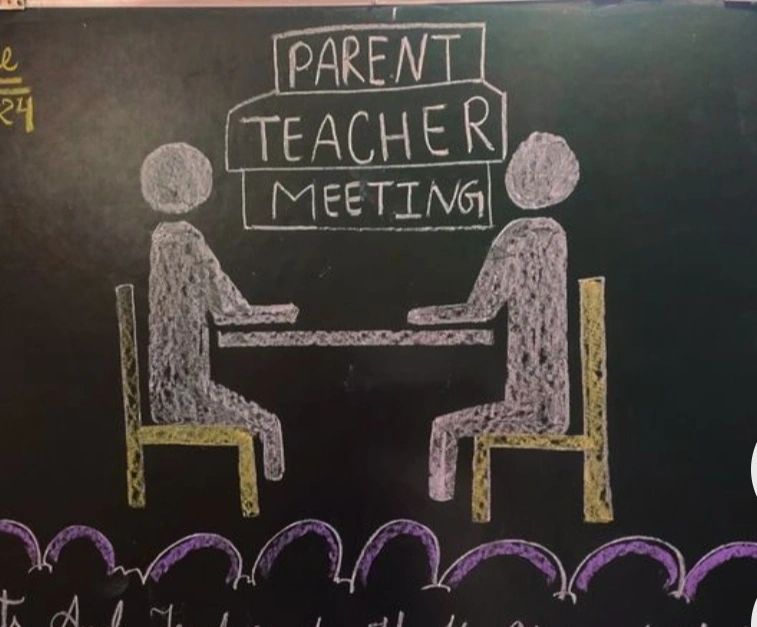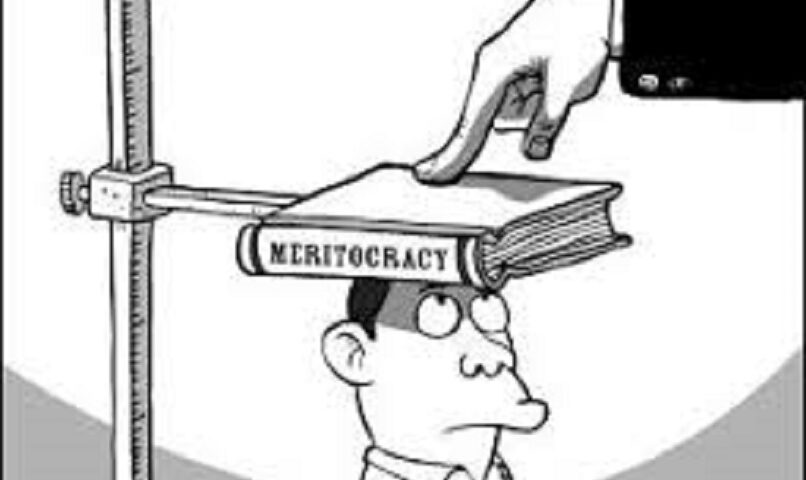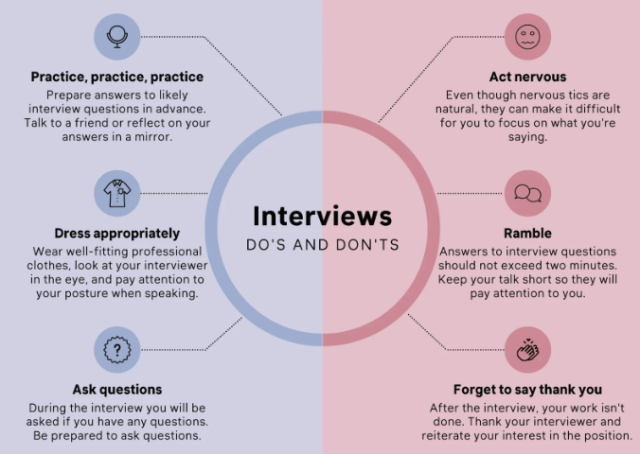‘Your Child Will Suffer If You Don’t Obey’: How Kashmir’s Schools Are Weaponizing PTMs to Enforce Fear, Fees, and Silence. An Investigative Exposé on the Brutal Reality of Kashmir’s Education System
By: Javid Amin
PTMs as Tools of Oppression in a Conflict Zone
In Kashmir, where children have grown up amid pellets, protests, and perpetual uncertainty, education is often the only hope for a future beyond conflict. Yet, that hope is being crushed by schools-turned-mafias using Parent-Teacher Meetings (PTMs) to extort money, humiliate families, and enforce authoritarian control. This report uncovers how Kashmir’s education system, already fractured by decades of violence, is exploiting PTMs to punish parents—while the government and authorities watch in silence.
The Viral Circular: A Snapshot of Institutional Bullying
In April 2024, a private school in Srinagar sent parents this threatening notice:
“Dear Parents,
Greetings!
It has been observed that some parents do not attend the Parent-Teacher Meet, leaving their ward in a state of deprivation. It is disturbing for the child to see others’ parents discuss their progress while they wait.
You are urged to attend the PTM so we are not forced to:
- Strike your child’s attendance.
- Halt notebook checking.
Your cooperation will be appreciated.
Regards,
Incharge”
This circular, leaked on social media, became a symbol of Kashmir’s PTM crisis. Parents called it “emotional terrorism,” accusing schools of holding children’s education hostage.
The Anatomy of Humiliation: How Kashmir’s Parents Are Silenced
1. Public Shaming Tactics
- Name-and-Shame Registers: Schools in Srinagar maintain “Defaulters’ Lists” displayed at PTMs. Parents who miss meetings or delay fees are branded “irresponsible” in front of peers.
- Child Punishment: Students are forced to stand outside classrooms or denied lunch breaks until parents attend PTMs. A Sopore mother shared, “My daughter wet herself in class out of fear when the teacher threatened to call me.”
2. Weaponizing Children’s Trauma
Kashmiri children are no strangers to trauma—80% show symptoms of PTSD due to conflict (MSF Report, 2023). Schools exploit this vulnerability:
- Psychological Blackmail: Teachers tell students, “Your parents don’t care about you,” if PTMs are missed.
- Withholding Report Cards: Over 50% of Srinagar schools refuse to release academic reports until fees are paid, per the Kashmir Education Watch.
The Fee Crisis: How Schools Profit from Desperation
Skyrocketing Fees in a Struggling Economy
- 300% Increase Since 2019: Private schools in Srinagar charge ₹60,000–₹1.2 lakh annually, while Kashmir’s per capita income is ₹1.1 lakh (Govt. Data, 2023).
- Hidden Charges:
- “Security Fee”
- “Winter Session Charge”
The “Donation” Racket
Schools demand “voluntary donations” for dubious projects:
- ₹50,000 for “smart boards” that remain wrapped in plastic.
- ₹20,000 for “playground upgrades” in schools with no playgrounds.
A Budgam parent revealed, “They told me, ‘Donate or your child won’t get a desk.’”
The School Mafia’s Playbook: Unchecked Power, Zero Accountability
1. Cartel-Like Behavior
Elite private schools in Kashmir operate as a cartel:
- Fixed Fee Structures: 20 top schools in Srinagar coordinate annual hikes to avoid competition.
- Blacklisting Dissenters: Parents who complain are threatened with expulsion. In 2023, 12 students in Baramulla were expelled after their parents spoke to the media.
2. Exploiting Legal Loopholes
- No Fee Regulation: Unlike other Indian states, J&K has no Fee Regulatory Committee. The J&K Education Act’s vague clauses let schools justify extortion.
- Weak RTE Enforcement: Despite the Right to Education Act, schools violate Section 12(c) by linking admission to fee payments.
Where Is the Government? A Symphony of Silence
1. Complicit Authorities
- Directorate of School Education: In 2023, it received 1,200 complaints about PTM coercion. Only 3 schools received warnings—none penalized (RTI Reply, 2024).
- Elected Representatives: Former J&K Education Minister stated, “Private schools are autonomous,” refusing to intervene.
2. Political Apathy
- Budgetary Neglect: Only 2.8% of J&K’s 2024 budget was allocated to education—lowest in India.
- No Grievance Redressal: The State Commission for Protection of Child Rights (SCPCR) lacks quorum since 2019, rendering it defunct.
The Human Cost: Stories from the Ground
1. Rafiq’s Story: “I Sold My Orchard to Pay Fees”
Rafiq Ahmed, a farmer from Pulwama, sold his apple orchard to pay his son’s fees. “The school demanded ₹80,000 in ‘retrospective charges.’ When I couldn’t pay, they made my son clean toilets during PTM.”
2. Ayesha’s Trauma: “They Called Me a Beggar”
Ayesha, a single mother in Srinagar, was mocked during a PTM for wearing a worn-out pheran (traditional cloak). “The teacher said, ‘If you can’t afford clothes, why send your child here?’ My daughter hasn’t spoken for weeks.”
The Loud Bang: Demanding Answers
1. Why Is No One Talking About This?
- Media Blackout: Local media avoids criticizing school owners, many of whom have political ties.
- Social Stigma: Parents fear backlash, as schools label dissenters “anti-education.”
2. The School Mafia’s Political Patrons
Many elite schools are owned by powerful families linked to mainstream parties. For example, the owner of Srinagar’s Green Valley High is a relative of a former MLA.
Solutions: A Blueprint for Resistance
1. Immediate Actions
- Parent Unions: Form collectives like the Kashmir Parents’ Alliance to boycott exploitative PTMs.
- Public Interest Litigation (PIL): File cases under Article 21 (Right to Dignity) and RTE Act.
2. Systemic Reforms
- J&K Fee Regulatory Act: Cap fees and mandate transparency.
- Amend J&K Education Act: Criminalize academic coercion and humiliation.
- Revive SCPCR: Appoint members to address child rights violations.
3. Global Pressure
- UNICEF/UN Intervention: Highlight violations of the UN Convention on the Rights of the Child (CRC).
- Diaspora Advocacy: Engage Kashmiri diaspora to fund legal battles and awareness campaigns.
Bottom-Line: Education or Extortion? Kashmir’s Defining Battle
Kashmir’s children are not commodities. Every threatening circular, every withheld notebook, and every public shaming stains the future of a generation that has already endured too much. The government’s silence is complicity. The school mafia’s greed is a crime. As the poet Agha Shahid Ali wrote, “The world is full of paper. Write to me.” It’s time to write a new chapter—one where education in Kashmir is a right, not a ransom.




